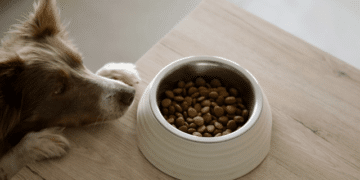As pet parents, we want nothing more than to keep our furry friends healthy and happy. When minor health issues pop up, many people are turning to natural remedies for pets as a gentle and effective way to support healing. From itchy skin to an upset stomach, there are a variety of holistic pet care approaches that can provide relief without relying on strong chemicals or prescriptions for every issue.
This guide explores the best natural remedies for common pet ailments, helping you care for your cat or dog using safe, home-based solutions. However, remember that while these methods are often effective, they’re not a substitute for professional veterinary care. Always consult your vet before starting a new treatment, especially if symptoms persist or worsen.
Why Use Natural Remedies?
Holistic pet care has grown in popularity for good reason. Natural remedies for pets often use gentle, non-toxic ingredients with fewer side effects. They’re also easy to find, budget-friendly, and promote wellness from the inside out.
Whether you’re managing day-to-day discomforts or seeking alternative treatments to support a healthier lifestyle, natural pet health approaches allow you to treat your animal companions with care and mindfulness.
Common Pet Ailments and Natural Remedies
Below are some of the most common issues pet owners face, along with simple home remedies for dogs and cats that you can try with confidence.
1. Itchy Skin and Allergies
Itchy skin is one of the most common complaints among pets, especially during allergy season. Scratching, licking, and irritation can make your pet miserable.
Natural Remedies:
-
Oatmeal baths: Grind plain oatmeal and mix with warm water for a soothing soak.
-
Coconut oil: A small amount massaged into dry, irritated areas can help moisturize and reduce inflammation.
-
Chamomile tea spray: Brew and cool chamomile tea, then spritz onto the affected area to reduce redness and itching.
These remedies offer safe, natural relief while avoiding harsh steroids or medicated shampoos.
2. Upset Stomach or Diarrhea
Digestive issues are another frequent problem for pets. Luckily, several kitchen staples can help calm an upset tummy.
Natural Remedies:
-
Canned pumpkin (pure, not pie filling): Rich in fiber, it helps regulate digestion.
-
Plain boiled chicken and rice: A bland diet that’s gentle on the stomach.
-
Slippery elm: An herbal supplement that coats the digestive tract and soothes inflammation.
For minor digestive discomfort, these remedies can make a quick difference and support normal digestion.
3. Flea and Tick Prevention
Chemical flea treatments can sometimes cause side effects like skin irritation or lethargy. If you’re looking for alternatives, there are natural options that work well for prevention.
Natural Remedies:
-
Apple cider vinegar spray: Mix equal parts water and apple cider vinegar and spray on your pet’s coat (avoid eyes).
-
Diatomaceous earth (food-grade): Dust around your home or lightly on your pet’s fur to kill fleas by dehydrating them.
-
Lemon spray: Boil sliced lemon in water, let it sit overnight, and spray on your pet to repel fleas.
These methods are excellent for ongoing flea management and are safe when used correctly.
4. Ear Infections
If your pet shakes its head or scratches at its ears, it might be suffering from a mild ear infection or yeast overgrowth.
Natural Remedies:
-
Witch hazel: Gently clean the ear with a cotton ball soaked in witch hazel.
-
Green tea rinse: Brew a bag of green tea, cool it completely, and use it as an ear rinse.
Always ensure ears are fully dried after cleaning, as moisture encourages bacterial growth.
5. Minor Wounds and Cuts
Pets can get small cuts or scrapes while playing outdoors. These wounds often heal well with basic home care.
Natural Remedies:
-
Aloe vera gel (pure): Speeds healing and soothes inflammation.
-
Calendula tincture (diluted): Known for its antiseptic and healing properties.
-
Manuka honey: Has antibacterial properties and can be applied to clean, minor wounds.
Always clean wounds first and monitor for signs of infection.
6. Anxiety and Stress
Just like humans, pets experience stress. Loud noises, separation, or changes in environment can trigger anxiety.
Natural Remedies:
-
Lavender essential oil (diffused only): Calms the nervous system never apply directly to your pet.
-
CBD oil for pets: Helps reduce anxiety, pain, and inflammation (choose pet-specific, THC-free options).
-
Chamomile or valerian root (in pet-safe doses): Can be used as calming supplements.
Natural calming remedies can improve your pet’s quality of life and ease transitions or stressful events.
Dos and Don’ts of Natural Pet Care
Do:
-
Use only pet-safe ingredients.
-
Start with small amounts and observe how your pet reacts.
-
Consult your vet before trying any new home remedy, especially if your pet is on medication.
Don’t:
-
Use essential oils without researching pet safety (many are toxic, especially to cats).
-
Give human supplements or medications to pets.
-
Delay medical care if symptoms are severe or persistent.
Being informed and cautious is key to safe and effective home care.
When Natural Isn’t Enough
Natural remedies can do a lot—but they can’t do everything. Certain symptoms are a sign that professional help is needed, including:
-
Persistent vomiting or diarrhea
-
Difficulty breathing
-
Seizures
-
Sudden lethargy or collapse
-
Deep wounds or heavy bleeding
In these cases, seek veterinary care immediately. Natural treatments can often work alongside vet-recommended therapies, but they should never replace urgent or ongoing medical treatment.
Final Thoughts
There’s something truly special about caring for your pets with natural, thoughtful remedies. From calming anxiety to healing minor wounds, the right holistic pet care practices can make a big difference in your animal’s well-being.









